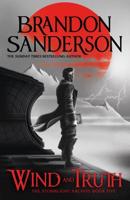Publisher's Synopsis
Excerpt from Two Chinese Poets: Vignettes of Han Life and Thought
In order to check on these various impressions I made a special study of Lu Chi's Wen F n (prose-poem on the Art of Letters) written in ad. 301-302. That study proved highly illuminating as to methods of approach to the classi cal literature: first, find a document of manageable propor tions, of certain authorship, certain date, and practically in dubitable text, and then follow where it leads. This conclu sion lies behind my book on the Wen F it published in 1951 (bollingen Series, No. Xx1x, New York, Pantheon Press). The next step was then clear. Two acknowledged masters of double-harness description of objects (m) were Pan Ku and Chang Heng, and within twenty to thirty years of each other they had composed their respective F n on the Two Capitals. Here were dateable documents by well-known au thors, the extant texts in most admirable condition. Further, the two authors had under contemplation the previous Han regime in contrast to their own. What more could an ideo logical historian want in the way of reliable and illuminating data? In this fashion I came to these special studies, came to write this book. Three considerations dominate its method: (1) to get at the texture of the minds of the two authors and their contemporaries; (2) placing the authors in the witness box as to Han beliefs and institutions, to estimate their reliability; (3) to explicate the particular matters on which they gave evidence. About the Publisher Forgotten Books publishes hundreds of thousands of rare and classic books. Find more at www.forgottenbooks.com This book is a reproduction of an important historical work. Forgotten Books uses state-of-the-art technology to digitally reconstruct the work, preserving the original format whilst repairing imperfections present in the aged copy. In rare cases, an imperfection in the original, such as a blemish or missing page, may be replicated in our edition. We do, however, repair the vast majority of imperfections successfully; any imperfections that remain are intentionally left to preserve the state of such historical works.
























